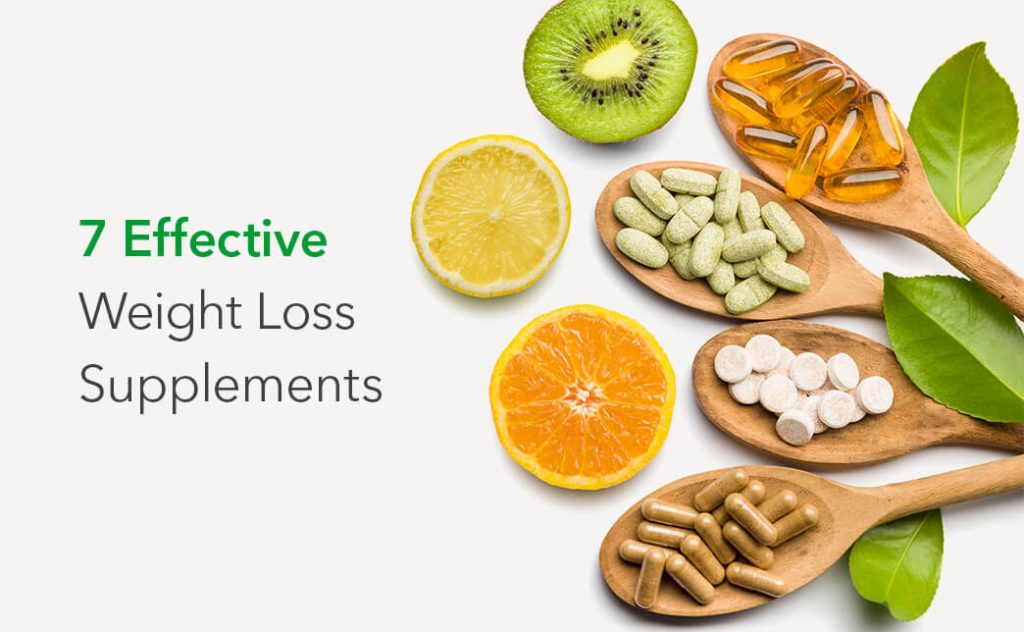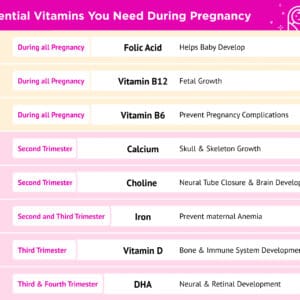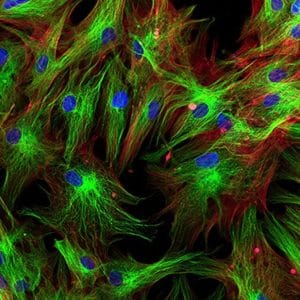Maintaining a healthy weight is a crucial aspect of overall well-being, and while diet and exercise are fundamental components, certain vitamins can also play a significant role in supporting weight loss efforts. A well-balanced intake of essential vitamins can help regulate metabolism, enhance fat burning, and improve overall health. This article will explore the key vitamins that can aid in weight loss, examining the scientific evidence behind their effectiveness and how they can be incorporated into a comprehensive weight management plan to achieve and maintain a healthy weight.

Vitamins and Nutrients for Effective Weight Loss
When it comes to weight loss, many people focus on diet and exercise alone. However, certain vitamins and nutrients can also play a crucial role in helping you achieve your weight loss goals. These vitamins not only support overall health but can also enhance your metabolism, improve your energy levels, and help regulate your appetite.
Vitamin D: The Fat-Burning Vitamin
Vitamin D is known for its role in bone health, but research has also linked it to weight loss. Studies have shown that individuals with higher levels of vitamin D tend to have lower body mass indexes (BMIs). Vitamin D is believed to influence weight loss by improving insulin sensitivity and regulating fat cells. Foods rich in vitamin D include fatty fish, egg yolks, and fortified dairy products. | Food Source | Vitamin D Content | | — | — | | Salmon (3 oz serving) | 450 IU | | Egg Yolks (1 large) | 40 IU | | Fortified Milk (1 cup) | 100 IU |
B Vitamins: Energy and Metabolism Boosters
B vitamins, particularly B6, B9 (folate), and B12, are essential for energy production and can help boost your metabolism. A deficiency in these vitamins can lead to fatigue, making it harder to stick to a weight loss diet and exercise plan. Including B vitamin-rich foods in your diet can help support your weight loss efforts. These foods include lean meats, fish, eggs, whole grains, and leafy greens. | B Vitamin | Food Sources | | — | — | | B6 | Chicken, Fish, Potatoes, Bananas | | B9 (Folate) | Leafy Greens, Legumes, Whole Grains | | B12 | Meat, Fish, Poultry, Dairy Products |
Vitamin C: Fat Metabolism and Immune Function
Vitamin C is not only vital for immune function but also plays a role in fat metabolism. It helps in the production of carnitine, a compound that assists in transporting fatty acids to the mitochondria, where they can be burned for energy. Foods high in vitamin C include citrus fruits, strawberries, bell peppers, and broccoli. | Food Source | Vitamin C Content | | — | — | | Orange (1 medium) | 70 mg | | Strawberries (1 cup) | 150 mg | | Broccoli (1 cup cooked) | 100 mg |
Iron: Oxygen Transport and Energy
Iron is crucial for transporting oxygen to cells throughout the body, including muscle cells. Adequate oxygen supply is necessary for efficient energy production during exercise. Iron deficiency can lead to fatigue, decreased performance, and a slower metabolism, all of which can hinder weight loss efforts. Include iron-rich foods like red meat, poultry, fish, beans, and fortified cereals in your diet. | Food Source | Iron Content | | — | — | | Red Meat (3 oz serving) | 3 mg | | Cooked Lentils (1 cup) | 6.6 mg | | Fortified Cereal (1 serving) | 10 mg |
Magnesium: Metabolism and Energy Production
Magnesium is a mineral involved in over 300 biochemical reactions, including those related to energy production and metabolism. It helps regulate blood sugar levels, supports the health of your muscles and nerves, and is involved in the synthesis of ATP (adenosine triphosphate), the molecule that provides energy to cells. Include magnesium-rich foods like dark leafy greens, nuts, seeds, and whole grains in your diet to support weight loss. | Food Source | Magnesium Content | | — | — | | Almonds (1 oz) | 80 mg | | Spinach (1 cup cooked) | 157 mg | | Black Beans (1 cup cooked) | 120 mg |
| Vitamin/Nutrient | Role in Weight Loss | Food Sources |
|---|---|---|
| Vitamin D | Improves insulin sensitivity, regulates fat cells | Fatty fish, egg yolks, fortified dairy |
| B Vitamins | Boosts metabolism, energy production | Lean meats, fish, eggs, whole grains, leafy greens |
| Vitamin C | Supports fat metabolism, immune function | Citrus fruits, strawberries, bell peppers, broccoli |
| Iron | Oxygen transport, energy production | Red meat, poultry, fish, beans, fortified cereals |
| Magnesium | Metabolism, energy production | Dark leafy greens, nuts, seeds, whole grains |
What vitamin is best for losing weight?

While there isn’t a single vitamin that directly causes weight loss, certain vitamins can support a weight loss regimen by enhancing metabolism, improving overall health, and reducing cravings. The most relevant vitamins for weight loss include those that play a role in energy production and metabolic rate.
Role of Vitamins in Weight Loss
Vitamins can aid in weight loss by supporting metabolic functions, enhancing fat burning, and improving overall physiological health. Vitamin B12 is particularly important as it plays a crucial role in energy production and can help increase metabolism. A deficiency in Vitamin B12 can lead to fatigue, which can hinder weight loss efforts.
- Boosts Metabolism: Vitamin B12 helps in the metabolism of fats and proteins, thus aiding in weight loss.
- Energy Production: It is essential for the production of red blood cells, which carry oxygen to cells, supporting energy production.
- Regulates Appetite: Some studies suggest that Vitamin B12 deficiency can lead to increased appetite and food cravings.
Vitamins that Support Weight Loss
Apart from Vitamin B12, other vitamins such as Vitamin D and Vitamin B6 can also support weight loss efforts. Vitamin D has been linked to body weight regulation, and deficiencies in it have been associated with increased body fat. Vitamin B6 is involved in many processes that can affect weight loss, including metabolism and the synthesis of neurotransmitters that regulate hunger and satiety.
- Regulates Body Fat: Vitamin D may influence body weight by regulating the expression of genes involved in fat cell differentiation.
- Metabolic Support: Vitamin B6 is crucial for many metabolic processes, including the metabolism of carbohydrates and fats.
- Appetite Control: Vitamin B6 is involved in the synthesis of serotonin, a neurotransmitter that helps regulate appetite.
How to Ensure Adequate Vitamin Intake for Weight Loss
To support weight loss, it’s essential to ensure adequate intake of vitamins through a balanced diet or supplements if necessary. Foods rich in vitamins, such as lean meats, fish, eggs, dairy products, and fortified cereals, can provide the necessary nutrients.
- Dietary Sources: Consuming a variety of foods including lean proteins, whole grains, and vegetables can help meet vitamin needs.
- Supplementation: For individuals with deficiencies or those who cannot obtain enough vitamins from their diet, supplements can be an effective option.
- Consult a Professional: It’s advisable to consult with a healthcare professional or a dietitian to determine the best approach for individual vitamin needs and weight loss goals.
What can I take every day to help lose weight?

To help with weight loss, it’s essential to consider a combination of dietary changes, lifestyle modifications, and potentially, certain supplements. The most effective approach often involves a multifaceted strategy that incorporates healthy eating habits, regular physical activity, and possibly, certain dietary supplements.
Nutritional Supplements for Weight Loss
When considering what to take daily to aid in weight loss, some individuals turn to nutritional supplements. These can range from protein powders to fiber supplements. The idea is that these supplements can help reduce hunger, increase feelings of fullness, or boost metabolism.
- Protein Supplements: High protein intake is associated with increased satiety and can help preserve muscle mass during weight loss.
- Fiber Supplements: Fiber can help reduce hunger and improve digestion, making it easier to stick to a weight loss diet.
- Green Tea Extract: Contains catechins, which may help increase metabolism and enhance fat burning.
Lifestyle Changes for Effective Weight Loss
While supplements can be helpful, the most crucial aspect of weight loss is making sustainable lifestyle changes. This includes dietary adjustments and increased physical activity. Sustainable weight loss is typically achieved through gradual changes that can be maintained over time.
- Balanced Diet: Focus on consuming a variety of whole foods, including vegetables, fruits, lean proteins, and whole grains.
- Regular Exercise: Aim for at least 150 minutes of moderate-intensity exercise or 75 minutes of vigorous-intensity exercise per week.
- Stay Hydrated: Drinking enough water is essential for overall health and can help control hunger.
Key Considerations Before Starting Supplements
Before adding any supplements to your daily regimen for weight loss, it’s crucial to consider a few key factors. This includes understanding the potential benefits and risks, as well as consulting with a healthcare professional.
- Consult a Healthcare Professional: To ensure safety and avoid potential interactions with other medications.
- Be Aware of Side Effects: Understand the possible side effects of any supplement you’re considering.
- Quality Matters: Choose supplements from reputable manufacturers to ensure quality and purity.
Frequently Asked Questions
What are the most effective vitamins for weight loss?
The most effective vitamins for weight loss are those that help boost metabolism, suppress appetite, and enhance fat burning. Vitamins like Vitamin D, B Vitamins, and Vitamin C play a crucial role in supporting weight loss. Vitamin D helps regulate fat cells and improve insulin sensitivity, while B Vitamins are essential for converting food into energy. Additionally, Vitamin C helps increase fat oxidation and improve overall metabolic health.
How do B Vitamins support weight loss?
B Vitamins are a group of essential nutrients that play a crucial role in supporting weight loss. They help convert food into energy, which is essential for maintaining a healthy metabolism. Specifically, B Vitamins like B6, B9, and B12 help regulate homocysteine levels, which is associated with fat storage. By maintaining healthy homocysteine levels, B Vitamins can help support weight loss and improve overall metabolic health.
Can Vitamin D deficiency hinder weight loss efforts?
Yes, a Vitamin D deficiency can hinder weight loss efforts. Research has shown that individuals with low levels of Vitamin D tend to have a higher body mass index (BMI) and greater body fat percentage. Vitamin D helps regulate fat cells and improve insulin sensitivity, making it easier to lose weight. Furthermore, Vitamin D deficiency has been linked to increased inflammation, which can also impede weight loss. Therefore, maintaining adequate Vitamin D levels is essential for supporting weight loss.
Are there any vitamins that can help suppress appetite?
Certain vitamins, such as Vitamin C and B Vitamins, can help suppress appetite and support weight loss. Vitamin C has been shown to reduce food cravings and improve satiety, making it easier to stick to a healthy diet. Additionally, B Vitamins like B6 and B12 can help regulate appetite hormones, such as leptin and ghrelin, which can help reduce hunger and increase feelings of fullness. By incorporating these vitamins into your diet, you can better manage your appetite and support your weight loss goals.














